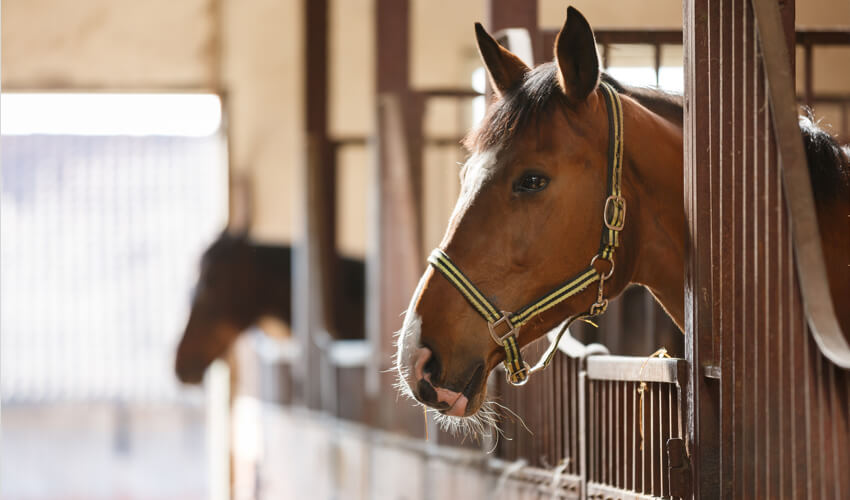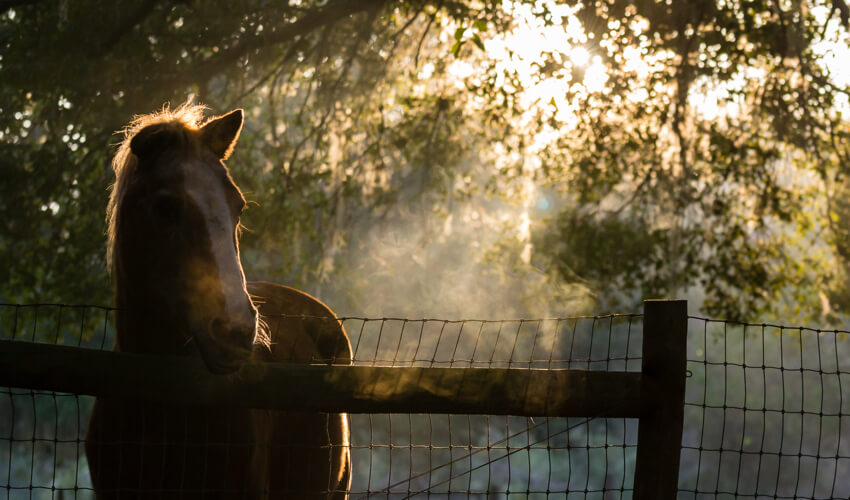7 ways horse lovers can rein in the risks

For many people, owning a horse is more than a passion; it’s a lifestyle. But while horses can give you an incredible amount of pleasure, they can also add significant risk to a family or business. Whether you or a family member own a horse to ride at home, participate in equestrian events or board other people’s horses on your property, a little extra preparation can help you rein in the risks associated with these equines.
-
If a helmet has “crashed,” replace it.
These days, helmets have a specialized foam layer that helps absorb the shock if the rider falls and hits her head. But, similar to an airbag in a car, once they’ve been “used,” they need to be replaced in order to provide full protection.
-
Install adjustable lighting in your barn.
Horses eyes don’t adjust as quickly as people’s do, so going from dark out-of-doors into a brightly lit barn can be problematic. If their eyes haven’t fully adjusted, they may run into objects or their handlers. Using lighting that is closer to the light outdoors may help them see better – and keep themselves and their handlers safer.

-
Repair gates that drag or catch.
When you’re moving a horse between fields or paddocks, you need to be concentrating on getting the horse and yourself safely through the gate. If it drags or catches, your attention is somewhere it shouldn’t be.
-
Make sure stall bars are spaced correctly.
While bars in the front of the stall can help visibility and air-circulation, it can also cause issues if your horse kicks against it and gets a hoof stuck between the bars. Make sure the bars are no wider than the width of a soda can, when vertical.

-
Secure the perimeter.
If the grass is greener on the other side of the fence, your horse is going to want it, so make sure your fences are solid and will allow you to quickly contain a loose or runaway horse.
-
Purchase a trailer with plenty of ventilation.
Horses inside closed trailers can overheat, or worse, die of carbon monoxide poisoning from gas emissions. Keep your trailer as wide open as possible when trailing your horse, even if you have to put a blanket on the horse to keep him warm while the windows are open.
-
Make sure you’re protected.
Horses present all kinds of liabilities to their owners and anyone else who rides them. Make sure you have the right coverage to protect yourself, your family and other riders on your property or horses.
